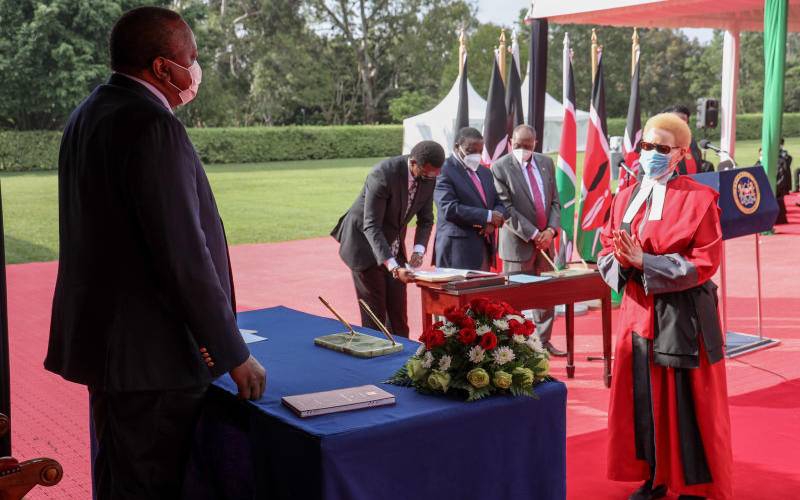×
The Standard e-Paper
Stay Informed, Even Offline

President Uhuru Kenyatta with newly sworn-in Judge of the Court of Appeal Justice Ngugi Grace Mumbi after she took her oath of office at a swearing-in ceremony held at State House, Nairobi on June 4, 2021.[PSCU, Standard]
Kenyans yawa! It is quite amazing how we grab an “opportunity” regardless of the context, conditions or moral considerations embedded in that “opportunity”.